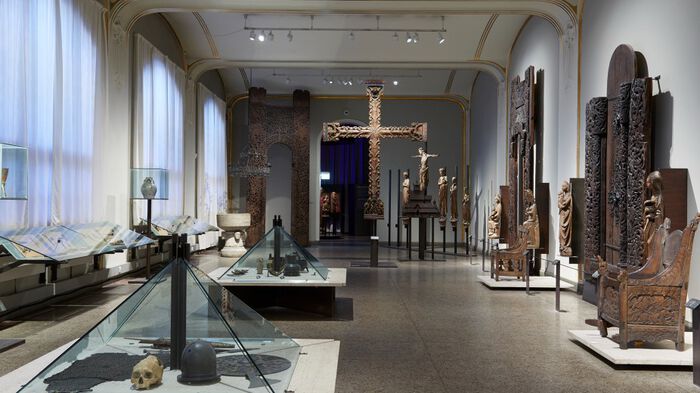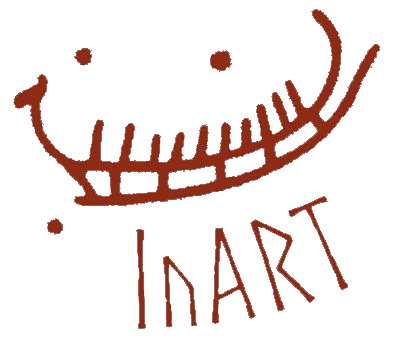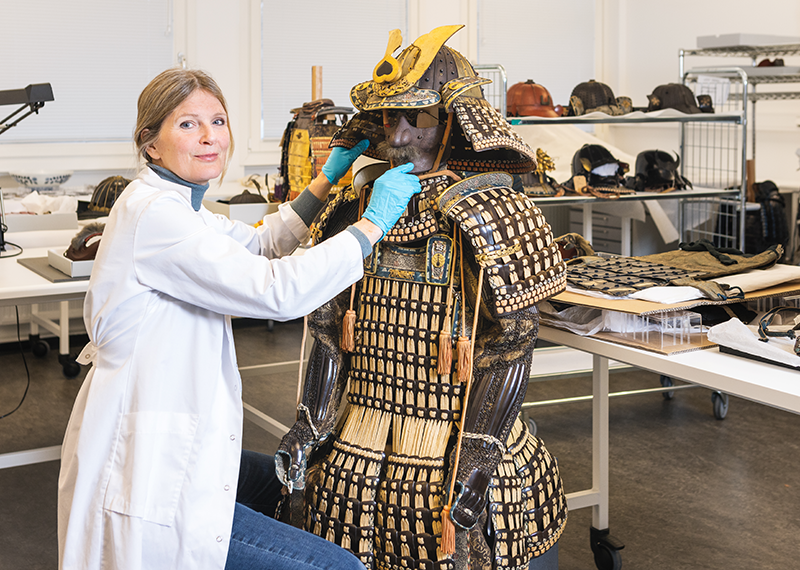
Research groups
The Museum of Cultural History has cross-disciplinary research groups connected to international networks, are arranging six open seminars each year and take part in the Research Day at the Museum of Cultural History.
Research projects
The research projects at the Museum of Cultural History explore topics within the three areas of the research strategy of the museum. The projects are connected with one or more of the researcher groups.
Research infrastructure: SciCult-KHM
SciCult-KHM – Science for Cultural Heritage KHM – is a heritage science laboratory collaborating with research environments nationally and internationally.
Reference collection for Stone Age artefacts
The reference collection consists of about 16,000 experimentally produced and copied lithic artefacts, corresponding to artefact material found at Stone Age sites in Norway.
Analysis Committee
The analysis committee processes applications for analysis and sampling of objects and osteological material that are in the Cultural History Museum's collections.
Events
How have individuals, communities, government, and non-government institutions imagined, regulated, and mobilised technical and scientific forms of knowledge together with objects and people across regions during the Cold War? Associate Professor Roland Wittje will discuss his research in the history of science and technology at the Indian Institute of Technology Madras.
Can exhibitions be qualified as research-in-itself? If they can, then how? Which criteria should be the basis of evaluating and verify research exhibitions? The aim of the PhD course is to build a solid knowledge-base for understanding the relationship between exhibitions and research in the past and today, in order to collectively explore potentials and challenges for what can be called research-by-display.
Can exhibitions be qualified as research-in-itself? If they can, then how? Which criteria should be the basis of evaluating and verify research exhibitions? The aim of the PhD course is to build a solid knowledge-base for understanding the relationship between exhibitions and research in the past and today, in order to collectively explore potentials and challenges for what can be called research-by-display.
InART2024 Conference 4-7 June 2024
InART provides a platform of knowledge-sharing between different fields of science and technologies applied to the characterization, conservation and preservation of global cultural heritage.
Welcome to the 6th International Conference on Innovation in Art Research and Technology – InART2024 – in Oslo 4-7 June 2024.
Search for our researchers
Search for name or research topic keywords.
Get a closer look at our collections
Our PhD students and early career researchers
The Museum of Cultural History has eight positions for PhD research fellows and every year two open positions within the three areas of the research strategy of the museum are announced, while two of the positions always are earmarked for other research requirements that may occur at the museum.


